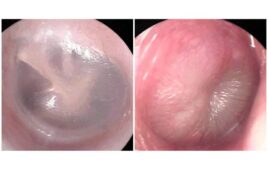A simple phone checklist can help detect telltale changes in the health status of people receiving nonmedical home care, according to the findings of a pilot study led by investigators at Harvard Medical School.
Results of the research, published online Aug. 10 in the Journal of the American Geriatrics Society, are based on a program that requires home-care aides to record changes in status during a telephone clock out at the end of each shift.
The research was conducted in collaboration with Right at Home, a senior home care provider, and ClearCare, a company that provides a software platform for homecare agencies.
Analysis of the data captured over a six-month period across 22 Right at Home agencies reveals that changes in clinical status are relatively common, occurring in two percent of all caregiver shifts and affecting, on average, two percent of recipients. The majority of changes were in behavior (17 percent) and skin condition (16 percent), followed by changes in eating or drinking behavior (14 percent) and ability to stand or walk (9 percent).
The results, researchers said, underscore the potential of real-time monitoring systems to spot problems and avert complications before they escalate enough to require hospitalization. Indeed, over the course of the six-month trial, 14 percent of the home-care recipients were hospitalized.
Recipients of non-medical home care often have chronic health conditions that lead to hospitalizations, some of which may be preventable.
The research team cautioned that whether the real-time monitoring system could, in fact, prevent hospitalizations and reduce cost of care remains unknown. That, they said, is the subject of an ongoing randomized trial across 400 home-care locations in the United States. However, the research team said, the fact that a basic phone questionnaire could capture important indicators in clinical status points to the value of harnessing simple technologies to monitor those receiving care at home.
“Millions of elderly Americans receive supportive home-care services each year, and many of them require frequent hospitalizations, so we set out to determine whether a simple real-time checklist could help improve outcomes and lower health care spending,” said study leader David Grabowski, Ph.D., professor of health care policy at Harvard Medical School. “Our results are a first step to answering that question.”
Under the pilot program, home caregivers were required to do a phone clock out at the end of their shifts. Caregivers receive an automated phone message prompting them to report any changes in health status. The message included a list of questions pertaining to changes in mental, neurologic, gastrointestinal, urinary and other indicators. Any changes reported via the automated system were immediately dispatched to a manager at the home-care agency office for further assessment and triage. The care manager determined whether the condition required closer monitoring, a change in care, a call into the doctor’s office or all of the above.
The idea, researchers said, is to prevent complications before they become grave enough to require hospitalization.




